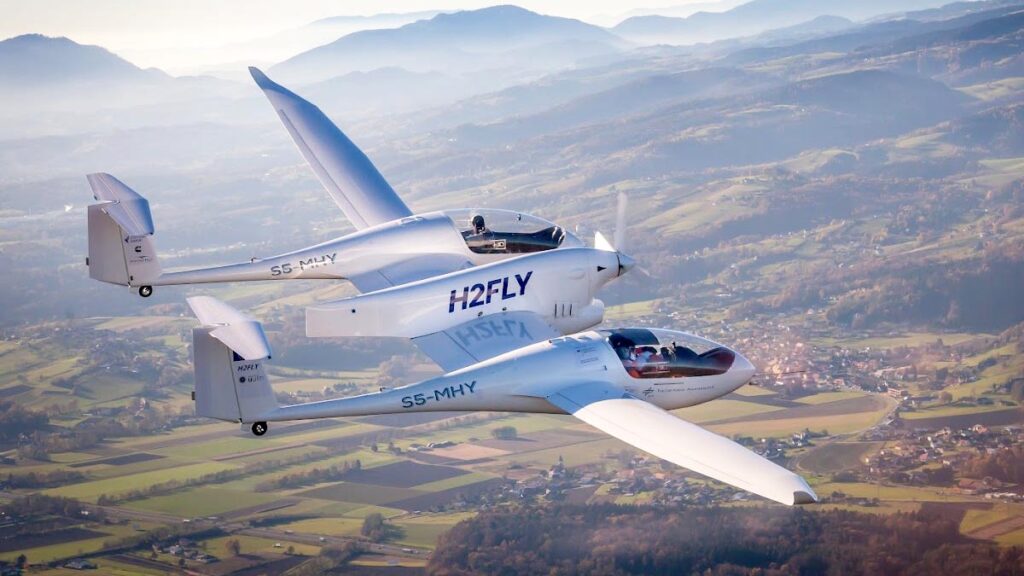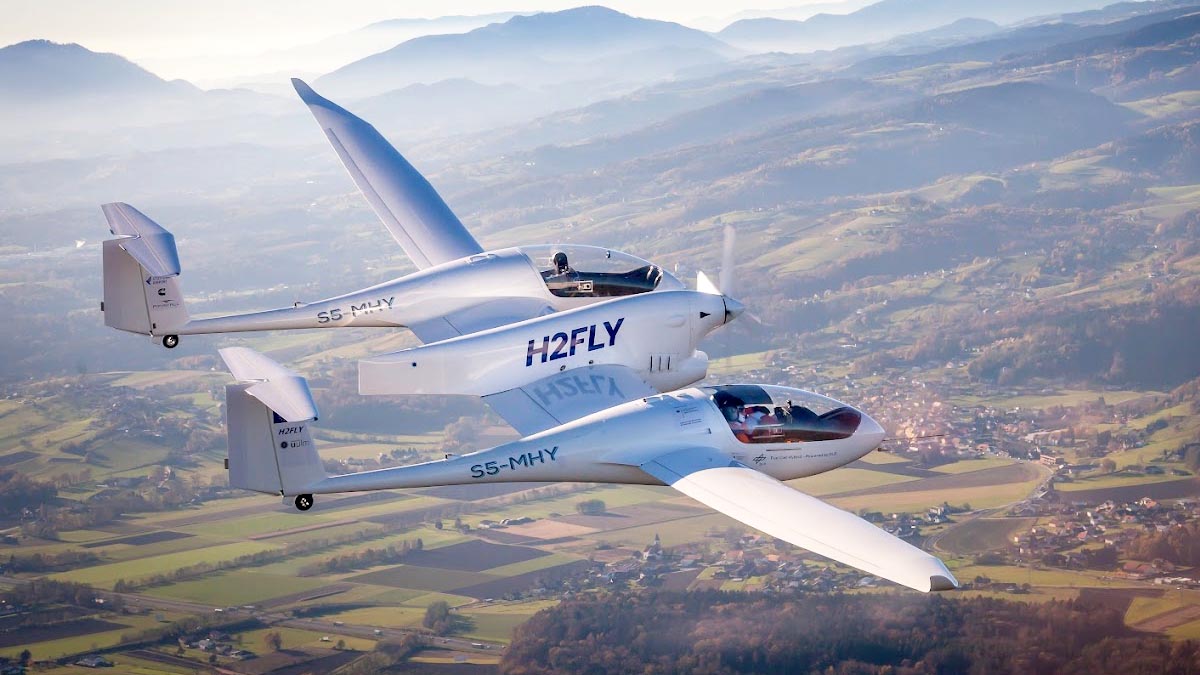
H2FLY world’s first piloted flight of a liquid hydrogen-powered electric aircraft.
H2FLY, a developer of hydrogen fuel and sustainable aviation technologies, has achieved a significant milestone by completing the world’s first piloted flight of a liquid hydrogen-powered electric aircraft. This achievement marks a groundbreaking moment in the aviation industry and sets the stage for sustainable, long-range flights powered by liquid hydrogen.
The successful flight was conducted using H2FLY’s HY4 demonstrator aircraft, which is equipped with a state-of-the-art hydrogen-electric fuel cell propulsion system. Professor Josef Kallo, a Co-founder of H2FLY, described this achievement as a pivotal moment, stating, “Together with our partners, we have demonstrated the viability of liquid hydrogen to support medium and long-range emissions-free flight.”
H2FLY conducted a series of test flights near Maribor, Slovenia, with the HY4 aircraft, including one flight that lasted over three hours. The results were remarkable: using liquid hydrogen instead of gaseous hydrogen effectively doubled the maximum range of the HY4, increasing it from approximately 435 miles (700 km) to an impressive 932 miles (1,500 km). This breakthrough has profound implications for emissions-free, medium to long-haul commercial flights.
One of the key advantages of using liquified cryogenic hydrogen (LH2) is its ability to significantly reduce tank weight and volume compared to pressurized gaseous hydrogen (GH2). This innovation not only extends an aircraft’s range but also allows for a more substantial payload. Moreover, the implications of this advancement are not limited to H2FLY’s HY4 aircraft; it has the potential to influence technology across various aircraft platforms.
Looking forward, H2FLY aims to scale up its technology for regional aircraft and other applications. The company is dedicated to the critical mission of decarbonizing commercial aviation, and this achievement represents a significant step in that direction.
The successful flight test campaign was part of Project HEAVEN, a consortium formed to demonstrate the feasibility of using liquid cryogenic hydrogen to power aircraft. H2FLY leads this consortium, which includes partners such as Air Liquide, Pipistrel Vertical Solutions, the German Aerospace Center, EKPO Fuel Cell Technologies, and Fundación Ayesa. Pierre Crespi, Innovation Director at Air Liquide Advanced Technologies, emphasized the importance of this partnership, stating, “Today’s success demonstrates the full potential of liquid hydrogen for aviation.”
Project HEAVEN has received support and funding from various sources, including the European government, the German Federal Ministry for Economic Affairs and Climate Action, the German Federal Ministry for Digital Transport, and The University of Ulm. These contributions underscore the significance of sustainable aviation in both national and international agendas.
Despite facing challenges since its establishment in 2014, H2FLY’s dedication and pioneering efforts have allowed the company to overcome obstacles and accelerate component development. Industry interest in their technology has grown substantially, further propelling the development of sustainable aviation solutions.
As H2FLY moves closer to commercialization, the company remains committed to innovation. They have announced plans for the next generation of high-altitude fuel cell systems, capable of providing full power range at altitudes of up to 27,000 feet. Additionally, H2FLY will open its Hydrogen Aviation Center at Stuttgart Airport in the near future, positioning it as a focal point for the future of aviation in Europe.
In conclusion, H2FLY’s successful piloted flight of a liquid hydrogen-powered electric aircraft represents a significant milestone in the pursuit of sustainable aviation. With its substantial range extension capabilities and collaborative partnerships, H2FLY is poised to play a crucial role in reshaping the aviation industry towards a greener and more sustainable future.

